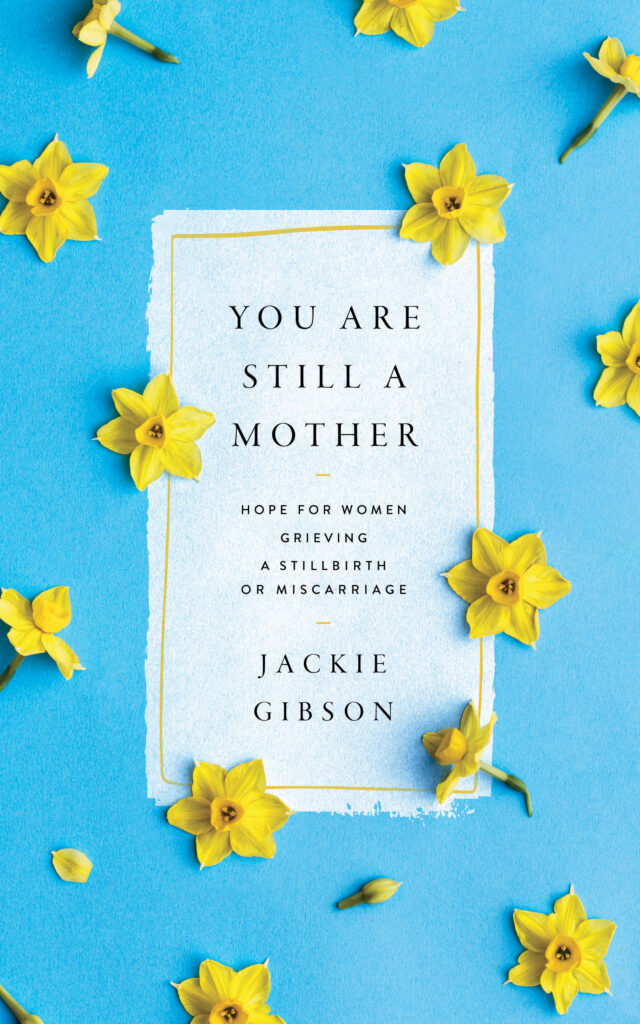One of the first things a woman does when she gets a positive pregnancy test is to calculate the due date. Almost immediately, she starts looking ahead. Will this baby arrive in the spring along with the daffodils or in the fall alongside crimson leaves? Will this be a summer baby wearing sleeveless onesies, their bare limbs on display, or will this baby arrive just in time to be an extra special gift at Christmas? She might start calculating age gaps between this baby and a sibling. Maybe she begins planning her pregnancy announcement or starts to brainstorm name ideas. A positive pregnancy test doesn’t just bring an immediate change to life, it also marks a change in how we look at the future, all of the sudden it’s burgeoning with promise.
I certainly did this during my first and second pregnancies: looking ahead, making plans, including this child in all my future plans. My first pregnancy ended the way I hoped—with a healthy son born in the summer who is now, astonishingly to me, 11-years-old. But my second pregnancy had a very different ending—our daughter Leila died in the spring at 39 weeks in the womb and was stillborn a few days later. All of my dreams of bringing home our second baby, raising a daughter, and giving Ben a sister to play with, dissolved. It was as if the candle had been snuffed out, and we were left in the darkness, watching the smoke coil. The peculiarity of the death of a baby in the womb is that it is not just the death of a life, it is also the death of a dream you never get to see unfold.
When my dreams were shattered with the death of our daughter, I was devastated and perplexed. I assumed that I could lay my own plans and expect them to pan out the way I hoped. I assumed that a positive pregnancy test would lead to the birth of a living baby nine months later. But as James reminds us, we do not know what tomorrow will bring (James 4:14). I quickly realized that there was nowhere else for me to turn but to the sovereign Lord who sits on his throne. He is the one who “laid the foundation of the earth,” who “shut the sea with doors,” and “who can number the clouds by wisdom.” (Job 38:4, 8, 37). He is the one who numbered Leila’s days (Psalm 139:16). And when I saw him in his manifold wisdom and terrifying majesty, I felt like Job: “Behold, I am of small account; what shall I answer you? I lay my hand on my mouth” (Job 40:4). I realized that I would never fully understand God’s ways, especially when they included such a painful providence—the death of our daughter.
Being faced with this truth brought me a certain measure of peace, but it didn’t bring me much comfort in the midst of deep sorrow. God’s sovereignty is one thing, but I found myself questioning whether God was really good. Before Leila’s death I had no problem believing this truth—the Bible is saturated with declarations of God’s goodness! “Good and upright is the LORD” (Psalm 25:8); he is “righteous in all his ways and kind in all his works” (Psalm 145:17); “you are good and do good” (Psalm 119:68). Do these truths change when life doesn’t go the way we hope it will, when our dreams are snuffed out? Is God really good, even when our daughter is stillborn?
Psalm 23 gives us the answer. Sometimes in life we enjoy days of green pastures beside still waters: good health, thriving relationships, the safe delivery of a new baby! Other times, our days are very dark, in the valley of the shadow of death: sickness, fractured relationships, death in the womb. But in both cases, the Psalmist is clear: “surely goodness and mercy shall follow me all the days of my life.” The word “surely” could also be translated “only.” When my first pregnancy resulted in the birth of my healthy and living son, Ben, only goodness and mercy followed me. And when my second pregnancy resulted in the death and stillbirth of my daughter Leila, only goodness and mercy followed me. This truth is not always easy to believe, but it is a truth always true. Whatever the circumstances. This is what brings us deep comfort in our sorrow, even if with Job, we also feel our smallness.
When my dreams were shattered, I had to fight to keep believing that God was sovereign, and that God was good. I don’t understand why the future didn’t pan out the way I had hoped, with the safe arrival of a living daughter, but I do know the Good Shepherd who is kind in all his works—even the works I don’t understand.
All the way my Savior leads me;
“All The Way My Savior Leads Me,” Fanny Crosby
What have I to ask beside?
Can I doubt His tender mercy,
Who through life has been my Guide?
Heav’nly peace, divinest comfort,
Here by faith in Him to dwell!
For I know, whate’er befall me,
Jesus doeth all things well,
For I know, whate’er befall me,
Jesus doeth all things well.
You Are Still a Mother
Grieving the loss of a child to stillbirth can be a lonely and agonizing experience. Sadly, this overwhelming loss is far more common than one may think, affecting around 1 in 160 births. Jackie Gibson honestly acknowledges the sorrow, the loneliness, and fears that come from suffering the loss of a child while pointing to the gospel with gentleness and understanding.






